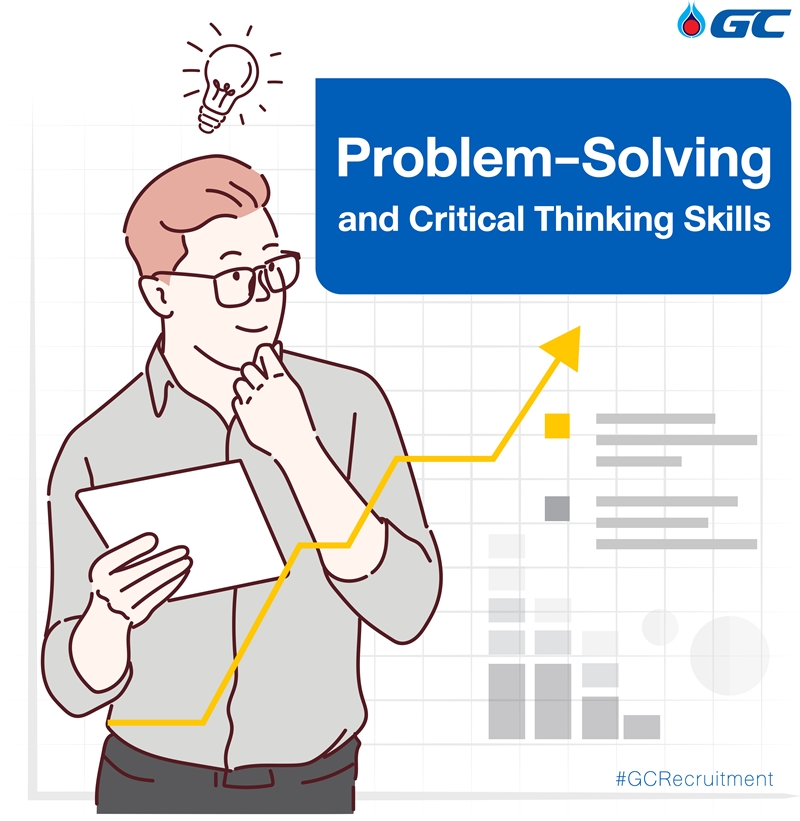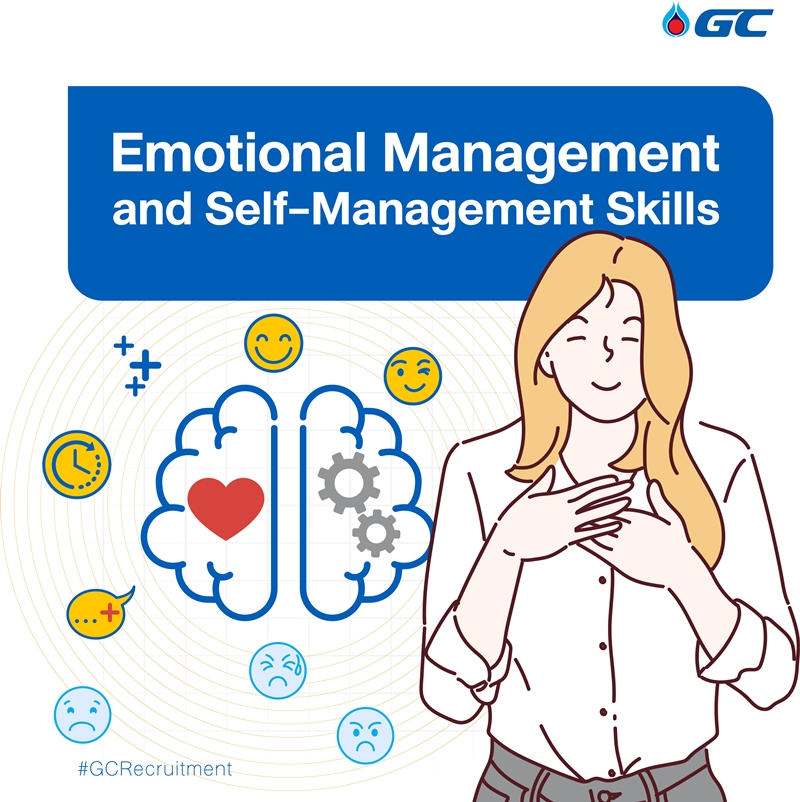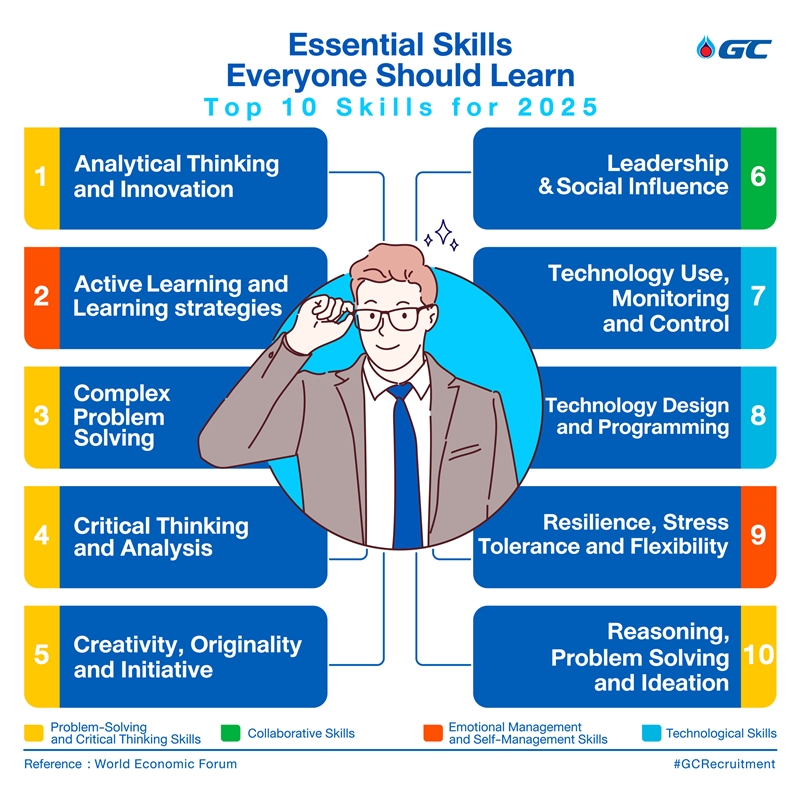Feature Stories
Top 10 must-have skills for workers in 2025

Essential Skills Everyone Should Learn
The impact of global crises on the labor market is plainly evident. As employees, we should be ready and resilient to changes that can unexpectedly occur at any time. A report by the World Economic Forum (WEF) anticipates that in the next five years, the future of work will encounter a stage of “double disruption” generated by both COVID-19 and the use of automation. These impacts may increase the risk of unemployment for those without the requisite skills to adapt to the changing labor market. A survey showed that over 50% of employees do not have the following four major skills needed for the 2020-2025 period:

Problem-Solving and Critical Thinking Skills
The WEF categorizes critical thinking and problem solving as the most essential skills as work becomes more difficult and complicated in the future. As a result, employees with critical thinking and decision-making skills are needed in the new world of work including those who can initiate new solutions for their organizations. Therefore, these are valuable skills needed for employees in all positions.
Analytical thinking and innovation - (Number 1)
Complex problem solving - (Number 3)
Critical thinking and analysis - (Number 4)
Creativity, originality and initiative - (Number 5)
Reasoning, problem solving and ideation - (Number 10)

Emotional Management and Self-Management Skills
When a company encounters problems or undergoes changes, they expect that their employees can handle any issues and adjust accordingly, in addition to thriving under pressure while increasing their knowledge – all of which leads to developing solutions independently. Employees must be able to adapt quickly to challenging and changing circumstances. These skills are needed so employees can further develop and learn consistently.
Active learning and learning strategies - (Number 2)
Resilience, stress tolerance and flexibility - (Number 9)

Collaborative Skills
In the future, companies will need leaders who are passionate in what they do and driven to succeed. Leaders in this new era inspire others and support a work environment that encourages everyone to participate and contribute to a shared purpose, which in turn, leads to maximizing the team’s capabilities in achieving their planned goals.
Leadership and social influence - (Number 6)

Technological Skills
When an organization must quickly adapt to digital challenges, the skills and abilities needed to use technologies, digital devices and new programs becomes essential with regard to data and artificial intelligence, cloud computing, digital marketing and e-commerce, software engineering and product development. In addition, design and programming skills are increasingly needed.
Technology use, monitoring and control - (Number 7)
Technology design and programming - (Number 8)

Reference: http://www3.weforum.org/docs/WEF_Future_of_Jobs_2020.pdf
Compiled by: https://adecco.co.th/en/knowledge-center




